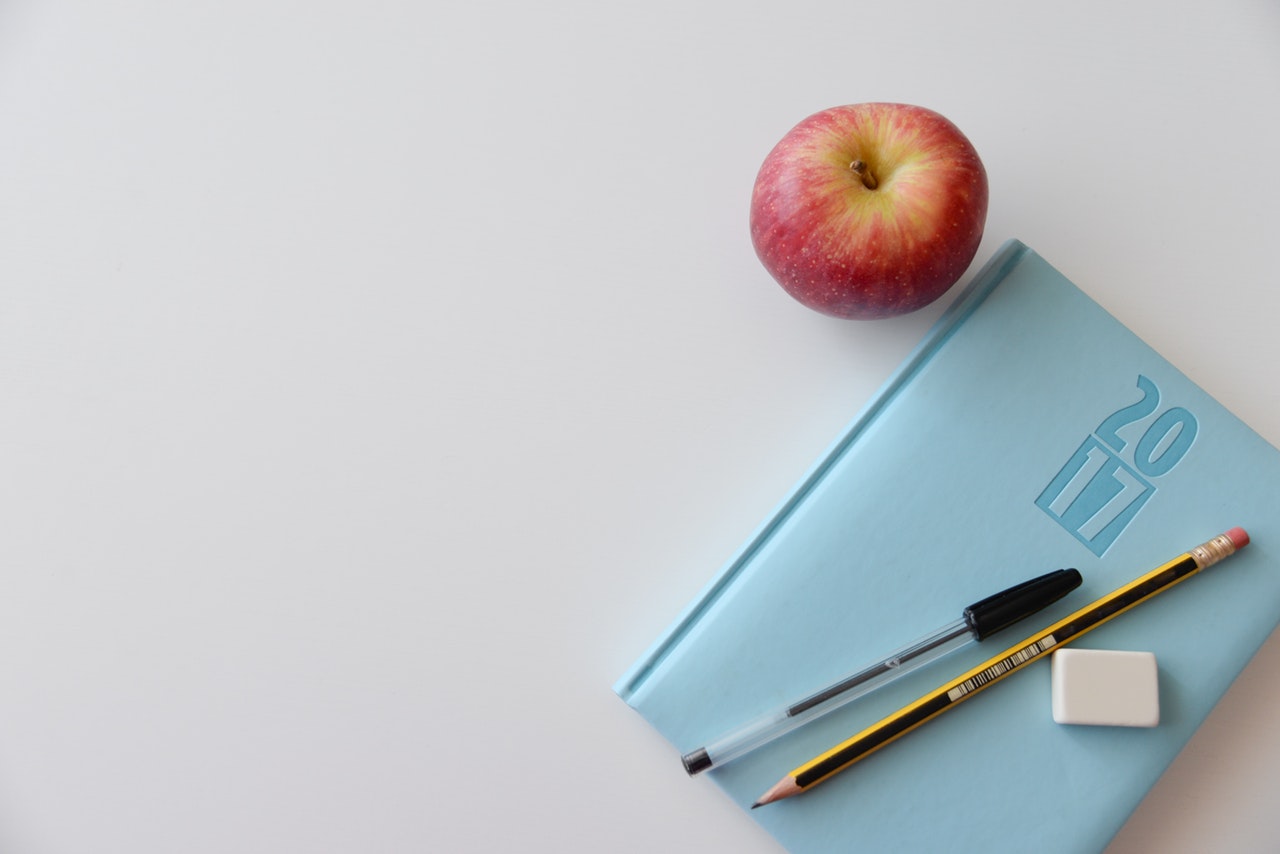As I write this post from the comfort of a secured place at an incredible school for my NQT year, it’s easy to forget the tiredness/tears/printer-induced meltdowns of my ITT year. I won’t lie: ITT is hard. You will be tired. You will get colds every single half term and there will be days where you think ‘why am I doing this?’. Now forgive the cliché but you’re doing this job because it’s AMAZING. Kids are brilliant and in the end, that’s why you’re there. Here are my top ten(ish) tips for an amazing training year.
1. Say yes (to the right things)
There is a lot to get involved in in schools and I would hugely recommend running or supporting a club/helping with the production/get involved with trips. Some of my best laughs this year were with my KS3 Creative Writing Club. Be social and go for drinks when you’re invited. Engage with your colleagues and go and see them teach, or even better, ask them to watch you. Engage with your feedback and say yes to doing something in a lesson that might make you awkward (mine was changing things as a lesson went on. Little Miss Control here got panicky for a solid few months about this).
2. Say no (to the wrong things)
Now as I said, schools are busy places and you are the new innocent Bambi in a zoo. Nice empty timetable in term 1? Yeah, that’s for a reason. You are not there to do the following: other people’s cutting out, laminating, phone calls, resource making, photocopying, cover or stapling. Now obviously if the printer is jammed and you have a free, do help your colleagues because you’d want them to do the same for you, but remember you’re not a lackey and don’t feel bad for having more frees.
WARNING: This can be really tough if, like me, you have a natural helper attitude. Switch it off and ignore the huffs/puffs/’oh I’d love to have so much free time’ comments.
3. Put your course first
You can and will only do this once. That free time is for you to observe others (honestly, this is where I learnt the most), research current pedagogy and methodology, plan your lessons, collate your evidence and write your essays. I spent most of my time in school not doing these things (my own fault, see 2), which meant I did them at home. Where did that end up? With me booking off an entire day of lieu hours. which instead of spending with my long-suffering partner, I spent making an entire evidence bundle. Learn from my mistakes!
4. Be organised
Now this will appear on every single ‘Top 10 tips’ list from everyone ever but don’t ignore it! Buy a planner and spend time writing every single aspect in it: essay due dates, data drop dates, marking deadlines, report due dates, meetings, training sessions, parents’ evening… it goes on. Make sure you know when you need to have things in for printing, when your mentors need your lesson plans and plan ahead. There are some amazing planners out there; I’m a simple post it list girl (post it in the diary = can move it around if it doesn’t get done) but whatever works for you. I’d massively recommend starting a cloud based Drive (Google Drive forever <3) and uploading everything you make and write on there because your USB dying before an observation (real life horror story) isn’t funny and will probably induce an instant heart attack before you’ve even had the chance to set cover.
5. Eat right
This one won’t be on many lists but it should be. Organise your food. Schools are dangerous places filled with sugar, caffeine, butter, salt and finally, more sugar. This will not make you feel good. Well, that’s a lie. It will for about 7 minutes, but long term it will make you sleep badly (see 10), have mad mood swings and contribute hugely to your bout of end-of-termitis. Take time to pack a proper breakfast, a snack, a good nutritional lunch and an afternoon snack if you have clubs/parents’ evening. I like to use replacements: mango/banana or pomegranate seeds (if it’s payday) feel like sugary treats, popcorn feels like a packet of crisps, Beanies coffee feels like a Starbucks etc. This will lead to a desire to…
6. Join the gym
Now, I didn’t know about number 5 when I first started teaching 2 years ago and I basically thought that every day was a magical tea party where I could eat freely and be fine. I was wrong. Last summer holiday I joined the gym and it’s a life changer. Yes you’ll lose weight/tone up but you will also: sleep SO much better, relieve stress (I like to imagine the treadmill is a stream of rude people’s faces), want to eat better and it’ll keep your endorphins up. On a personal level, it has helped my mental well-being more than anything else and that is so important in our industry. There will be days where you are dying to go home but make a deal with yourself: ‘I’ll stay for fifteen minutes’ can often lead to a fab workout.
7. Be okay with a crap lesson
Time for the serious bit. This will happen. It might even be that on one windy, rainy Friday in December that every single lesson is a crap lesson. You need to get okay with that pretty quickly. It’s hard because you’re probably a perfectionist but face it: not every teacher is outstanding 20 lessons a week, every week, for 40 years. Listen to your feedback. You don’t have to agree. You don’t have to like it. But listen to it, take one idea and try it in your next lesson. Remember that your mentor has definitely taught a few thousand lessons and they’ve watched their fair share too. Show yourself, and your mentor that you will keep pushing for excellence.
8. Your lesson plan is not the bible (or any other religious text)
This one was difficult for me. I have a pretty good memory and would therefore like to stick to my plan rigidly. I won’t forget the first time I had to stop my lesson because the class absolutely could not fathom ice-berg words. This made me a wreck and at the end I was almost crying whilst apologising to my mentor. That day I learnt that that bit of paper is there to show someone else the stages of your lesson and to check you’re not showing up and winging it. That’s it. You will not cause Biblical floods or seven deadly plagues by going off road if that’s what’s best for the kids. If anything, you’ll be a better teacher and probably canonised or something.
9. … but your standards are
I did not start my year with a lovely ice breaker. I started my year with a list of rules and consequences and I will do so again this year. It’s your room, you’re the teacher, you’re the expert and that’s the end of that. Know your school’s behaviour policy and know your own non-negotiables. Mine include talking whilst I’m talking, showing up to my lesson looking scruffy, leaning back in your chair and chewing gum. Know your rules and stick to them relentlessly. I actually find this makes bad behaviour less stressful; you never have to make a decision on what to do if the process is always the same. It also lets the kids know you know what you’re doing and you’re not sorry. Heads up: THIS WILL BE HARD. Sometimes, for the sake of an easy life, it’s easy to let it go. However, if you’ve said it’s a rule, then it’s a rule. Stick it out!
10. Sleep
Yay! Someone is giving you permission to sleep in your training year! To be honest, it’s not worth not sleeping. People say kids don’t know things BUT THEY DO and they sure as hell know when you’ve had 2 hours kip and have been mainlining espresso since 5am. If you can’t get everything done in a day then either: move it to another or plan better. Working hard is not the same as working smart and nothing is worth giving up sleep for. Take care of yourself to avoid burning out.
MY ISH TIPS:
I love EduTwitter. JOIN IT AND USE IT. Everyone is lovely. There’s so much free CPD, so many free materials and always someone there with a virtual hug when your day went badly. I would also hugely recommend following @ITTChat and joining in with the chats every term time Wednesday, 7-8pm.
Never rely on technology
Whiteboards break. Servers break. Computers break. USB’s break. You get the picture.
All you need are post-it notes and whiteboard pens
My work mum would be pleased with this one (I’ve watched her deliver some killer lessons armed with nothing but post it notes). I taught for a year before ITT and hand wrote and annotated ‘To His Coy Mistress’ on a whiteboard after the IWB broke. We did post it analysis and plenaries and it all worked fine but I was a wreck for the first 2 minutes when I realised my super engaging PowerPoint was a waste of time. Make sure you always have some post its and a spare whiteboard pen in your bag.
Make time to read
By this, I mean anything. It is calming, it is away from a screen, it develops your brain and makes you better at literacy, which makes you a better teacher.










